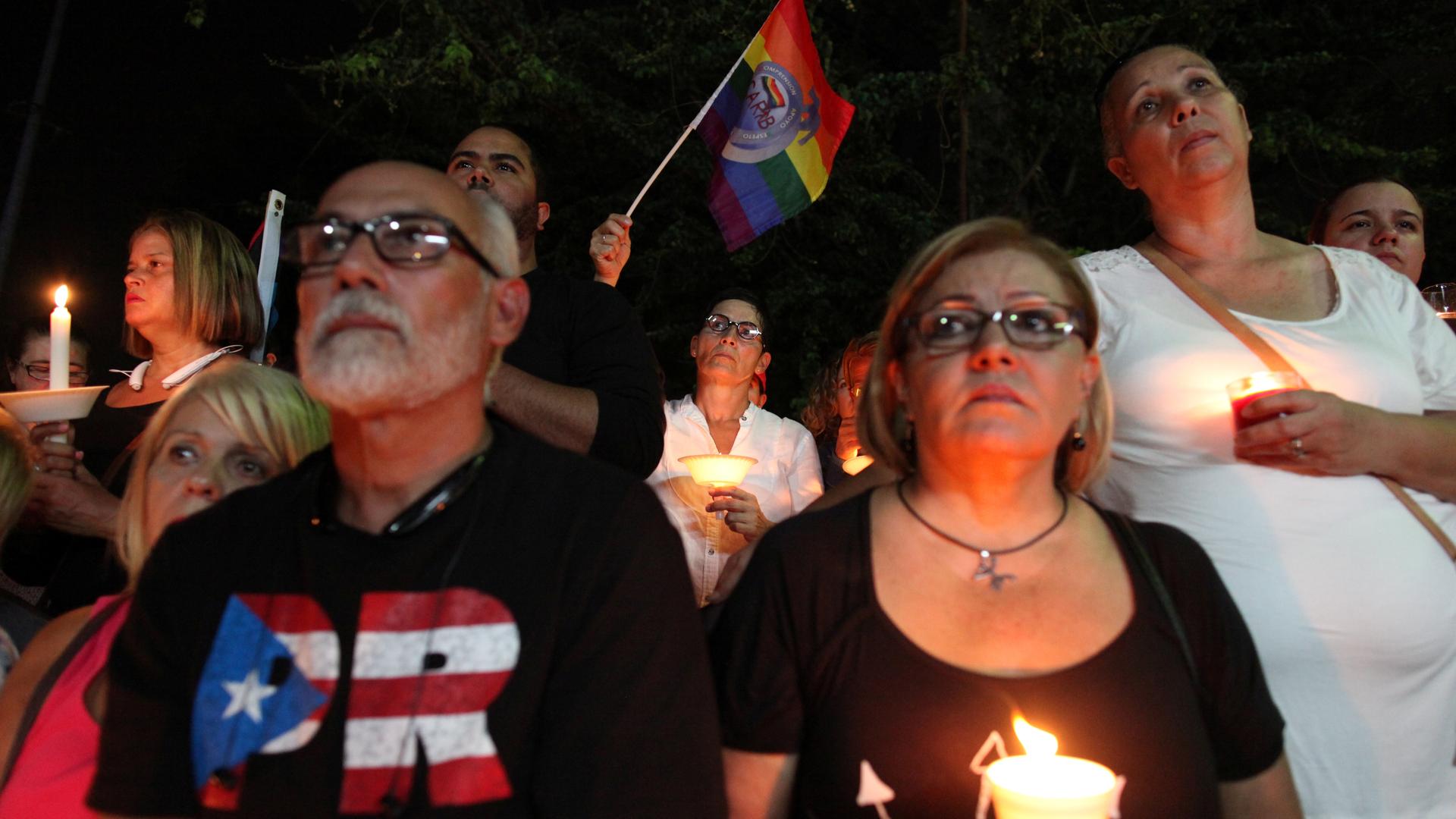Puerto Ricans gather for a vigil in memory of the victims of the Pulse gay nightclub shooting in Orlando, in San Juan, Puerto Rico, June 14, 2016.
Of the 49 people who were killed at the Orlando gay club Pulse last weekend, 23 of them were Puerto Rican. On the island, reaction to the shooting is complicated.
"There's a lot of sadness. There's a lot of anger as well because we know this was a targeted attack," says Carmen Velez Vega, LGBT activist and professor at the University of Puerto Rico. "We have lost a big part of our heart."
She says an attack like the one in Orlando is something her community has feared for a long time. But the tragedy has also allowed families to talk.
"We've seen a lot of … parents say, 'My kid is LGBT and I love them more than anything,'" she says. "And this is the first time these kids have heard this."
Velez Vega says some parents who were not tolerant have become so after the attack. But she cautions that it can also go the other way.
"It could make people more furious," she says. "But what I have seen is that a lot of people are just saying, 'Hey. We have to deal with this. We have to protect our kids.'"
Puerto Rico, like many Latin societies, is family oriented. This attack, against kids, hits to the core. Combine that with the fact that it was Latin night at the club and it feels like a double hit to the gut.
"That was the first thing that people mention," she says.
Many Puerto Ricans travel to Orlando. And many head right to Pulse. Velez Vega says it was a place that welcomed them.
"A lot of people from Puerto Rico go there to feel free," she says. "So this, for us, it's like our backyard. I mean, just look at the list of the victims. Most of the names are in Spanish. This is a direct hit not only to the LGBT community but to the Latin LGBT community."
After the attack, Velez Vega thinks there is no longer a safe space for LGBT Puerto Ricans who moved to the mainland so they could be out in public.
“I don’t believe in a safe haven,” she says. “Of course, if you are in a certain social position you will be able to protect yourself. But when you are someone that [is] part of the LGBT community, it’s most likely, especially if you are Latino, you’re going to be poor. … So you are going to be even more vulnerable than other people.”
Every day, reporters and producers at The World are hard at work bringing you human-centered news from across the globe. But we can’t do it without you. We need your support to ensure we can continue this work for another year.
Make a gift today, and you’ll help us unlock a matching gift of $67,000!
